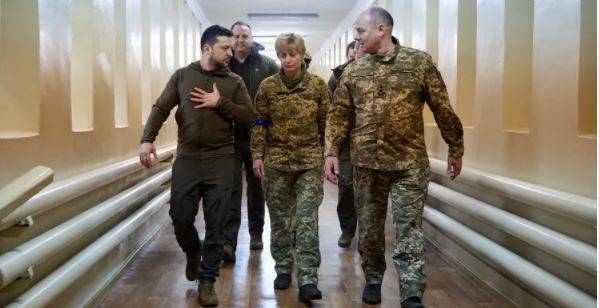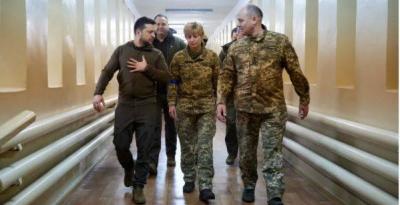The Russian-Ukrainian war continues for three weeks, raising significant concerns about its potential spread to other parts of the European continent, with no signs of an imminent end to the conflict. In a first-of-its-kind move since the war began on February 24, the prime ministers of Poland, Czechia, and Slovenia are set to travel to Kyiv on Tuesday to meet with Ukrainian President Volodymyr Zelensky and Prime Minister Denys Shmyhal.
According to a statement from the Polish government, "Prime Minister Mateusz Morawiecki, Deputy Prime Minister and Chairman of the National Security and Defense Committee Jaroslaw Kaczynski, Czech Prime Minister Petr Fiala, and Slovenian Prime Minister Janez Janša will head to Kyiv on Tuesday as representatives of the European Council to meet with Zelensky and Prime Minister Shmyhal."
Commenting on the significance of the visit and its possible outcomes, political science professor Ihsan Al-Shamari believes it is "more of a symbolic step than an effort to make a difference in stopping the war and establishing peace in Ukraine, as these three countries represented are not politically or economically influential in the European system, and their capacities and capabilities are limited, making them unable to play effective roles in a massive global crisis like the Ukrainian crisis." However, Al-Shamari adds in a statement to Sky News Arabia: "It is an expression of moral support, as the three countries are geographically closest to Ukraine, along with the historical ties that connect them."
He goes on to say: "The visit also indicates a serious concern among these countries, which were previously part of the Soviet system, that a Moscow victory in its war against Ukraine would undoubtedly place them in the direct danger and threat of Russia, amid escalating ambitions of Russian President Vladimir Putin to revive the Soviet vital space under the banner of the Russian Federation this time."
Al-Shamari points out that "if we were to witness a visit, for instance, from French President Emmanuel Macron, German Chancellor Olaf Scholz, or British Prime Minister Boris Johnson to the Ukrainian capital, the situation would be completely different, and one could count on achieving a difference and making a qualitative shift in European and Western stances regarding the Ukrainian crisis."
On the other hand, political writer and analyst Tariq Sarmami states that "this European step is very important, especially for the Ukrainian leadership and specifically for Zelensky, as it comes amid rising discussions about Russian forces preparing to besiege Kyiv and take control."
Sarmami adds in his conversation with Sky News Arabia: "Since this is the first such visit of European Union and NATO member state prime ministers to the Ukrainian capital since the onset of the war, it holds great moral significance for Ukrainians." However, the speaker also believes that "this visit should not be over-interpreted," stating: "It is undoubtedly a solidarity visit, but it will not significantly affect the ground and political realities of the Ukrainian crisis, especially since Poland, Czechia, and Slovenia are not central countries in the European system, and thus, they are not part of the narrow circle of European decision-making capitals, so they cannot bring about a qualitative change in the EU's approaches and stances that are limited to exerting diplomatic and economic pressure to compel Moscow to stop the war."




